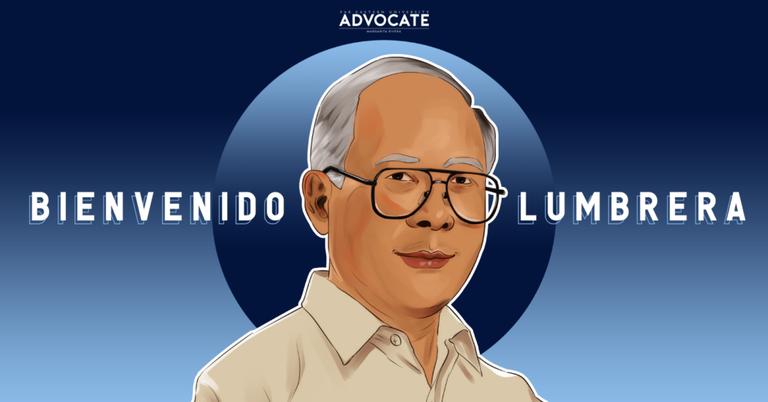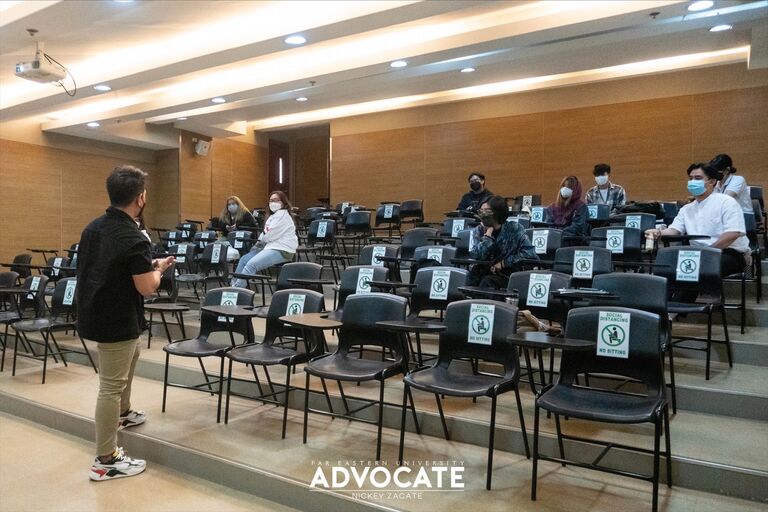
PRESS RELEASE: UAAP Season 84 partners with SMART
- March 05, 2022 12:08
FEU Advocate
October 12, 2021 04:19

For decades, Bienvenido L. Lumbera bared his truth across multiple literary forms, championing the Filipino experience from the paper to the blackboard and inspiring many generations of writers and scholars at a time when colonial mentality was astir.
Born on April 11, 1932, in the city of Lipa in Batangas, the late National Artist for Literature’s early life was untelling of the role that he would, later on, play in bolstering support for the Filipino language and the arts.
Looking back at the life he led and the works he put through, there was never a single definition of how he wanted it to be— he penned stories, essays, poetry, plays, musicals, librettos, and books; taught as a professor at universities like De La Salle University, Ateneo de Manila University, and the University of the Philippines Diliman; and joined several Filipino movements such as the Panulat para sa Kaunlaran ng Sambayanan (PAKSA), Kalipunan para sa mga Literatura ng Pilipinas, and the Concerned Artists of the Philippines (CAP).
All throughout Lumbera’s career, his love for the country and staunch criticism of the colonial concepts shined through. In his zarzuela Hibik at Himagsik nina Victoria Laktaw, he protested the quelling of the Filipina voice and contributions during the Philippine Revolution of 1896. On a similar note was the play “Tales of the Manuvu” composed, underlining the power of the people against authority during the Martial Law.
Steadfast and true to his principles, he criticized political events in the country through poetry— embodying the spirit of nationalism and national consciousness that always invoked an upwelling of thought against events like the Hacienda Luisita massacre of 2004 and war protest at Plaza Miranda in 2003.
His love for the national language manifested with his post as a professor. While teaching at the Ateneo de Manila University in the 1960s, Lumbera banded with fellow National Artist for Theater and Literature Rolando Tinio to revolutionize the curriculum by revising and integrating Filipino materials— essays about the Philippines, which replaced English and American works— into the courses, and using the Filipino language in the classroom.
Through and through, he represented relentless passion and advocacy to amplify the voice of Filipino masses— translating into his critical and literary writing. With this, he was given multiple titles and awards: National Artist for Literature (2006), Carlos Palanca Memorial Award for Literature (1975), and the Pambansang Gawad Pambansang Alagad ni Balagtas (1993), among others. He was also a mentor to numerous accomplished Filipinos— like Isagani Cruz, Virgilio Almario, and Doreen Gamboa Fernandez— who carry his fire in their own careers.
Truly, Lumbera’s time is not lost as his works in both prose and poetry continue to inspire Filipinos to question both the norm and the Philippine events as they occur, generation over generation. While the sun has set on the distinguished writer, the works he left will witness the sunrise on the steady awakening of his countrymen.
-Angelic Mizpah Chaste C. Bulanhagui
(Illustration by Maria Margarita Corazon P. Rivera/ FEU Advocate)









